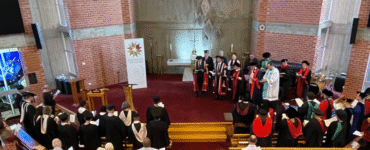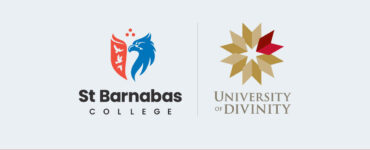Confluence, located within the University of Divinity, is an alliance whose members are committed to exploring the interconnection between different approaches to traditions of meditative practice and translating them for today’s community. It provides a context in which practitioners, scientists, health professionals, theologians and others, can discuss meditation, in all its manifestations. By combining historical and contemporary approaches to meditation, we hope to enhance the practice of meditation within a variety of communities.
In February, we held our first colloquium called: Meditation Today, Traditions in Conversation, at Pilgrim Theological College. The Colloquium was a conversation between philosophers, theologians, Buddhist monks, teachers, medical scientists and doctors.
Topics of the Discussions:
- Ancient Practices of Meditation: Stoic and Christian Dr Matthew Sharpe (Deakin University) and Dr Cullan Joyce (Catholic Theological College and Confluence)
- Religious Meditation: How is it relevant today? Associate Professor Reverend Dr John Dupuche (Catholic Theological College and Confluence)
- The Science of Meditation Dr Petrina Barson GP (The Contemplary) and Dr Anette Webb.
- Meditation and Education in Theory and Practice Janet Etty-Leal (Meditation Capsules, Meditation Australia and Confluence) and Christopher Morris (Catholic Theological College)
In July, we have partnered with The Meditation Association of Australia (MA) and ACU to organise the Australian Meditation Conference 20 to 22 July, held at ACU in Melbourne. This national conference on Meditation will be the largest of its type for decades and will bring together a variety of religious traditions, scientists, theorists and practitioners to discuss the role of meditation within society.
Traditions of meditation that emerge from religious traditions know how important it is for a person to experience themselves honestly. For the Christian, the aim of self-knowledge is to become like Christ: loving, non-judgemental, and deeply connected with the source of all life: God. Most meditative and spiritual practices used by Christians, be it attention to breath, use of a mantra, or scripture, use these formal processes as ways to slowly mediate the person into the experience of themselves with a progressively deeper authenticity. Christian spirituality shares many things with other meditative and spiritual practices from religious and non-religious traditions. Buddhists, Hindus, Muslims, all engage meditative practices for learning, healing, and the expansion of world-view. Meditation, in general, is a practice designed to facilitate radical honesty and loving kindness toward ourselves and the world.
In recent history (1970’s onward), forms of meditation that have emerged from religious traditions have been partnered with scientific approaches that are concerned with demonstration, explanation and repeatability explanation. This combining has produced an emerging culture of meditation that is transforming the contemporary consciousness. Mindfulness and Compassion meditations are two approaches that are particularly powerful in demonstrating the transformative potential that meditation has for individuals and communities.1 Studies are taken to show likely causal links between 1) the use of the meditative practices and 2) physiological and behavioural changes in the meditator.
Contemplative science, as some describe the contemporary work on meditation, is subject to critique by scientific peers.3 This process helps generate new approaches to research and provides different orientations for meta-analyses of the current field. Other fields of expertise could also contribute, albeit in different ways. Traditions of religious meditation have often remained vital and important sources of personal and cultural meaning for millions of people and for thousands of years. Enquiring into the context and content of the historical traditions on meditation and spirituality can offer insights into what conditions might assist in producing a sustainable, deep and qualitatively varied meditative experience.
The outcome of contemplative science, broadly understood as incorporating these approaches to meditation, is to provide individuals with access to results, meditative techniques and the experience of individuals and communities, so that they are able undertake the steps toward self-knowledge with confidence.
I attended a conversation between three people, each of whom works with communities who have suffered trauma. They described how trauma manifested in a number of ways including as a loss of community memory and social cohesion. Speaking of themselves, as members of these communities, they described how their own bodies and memories carry the effects of generations of struggle. We contain faults, fears and weaknesses, and in the silence of everyday life, of intimacy, of commutes, memory and distraction can impinge so that we barely attend to the simplest parts of ourselves: our body or our breath. A question arises: How can a person acknowledge the suffering of themselves and the world that they hold inside themselves, and still embrace experience through openness and love?
I acknowledge the assistance of Dr Petrina Barson and Dr Annette Webb who organised some of the research that contributed to the content of this article.
Confluence hopes to contribute to the ongoing conversation about meditation, to bring traditions into dialogue, and to engage a variety of communities. Please contact Dr Cullan Joyce if you have any suggestions for how we could do this, if you are interested in joining Confluence, or if you know any persons within the community who can contribute to the conversation about meditation today.
Dr Cullan Joyce
Catholic Theological College and Confluence






Add comment